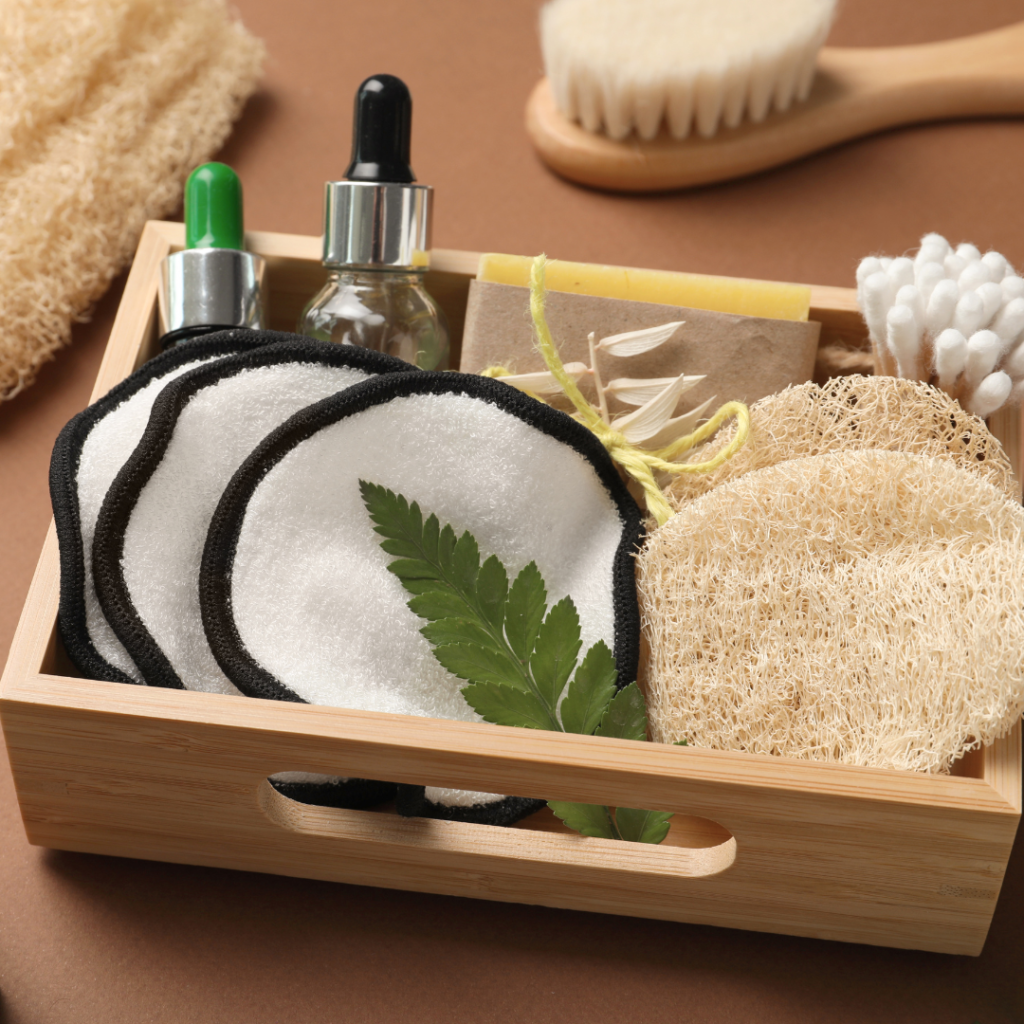Introduction: A New Era of Self-Care
In a world where environmental consciousness is becoming more integrated into daily decisions, even self-care routines are transforming. The days of endless plastic containers, single-use beauty products, and unsustainable wellness practices are giving way to a new era—sustainable self-care. More than ever, consumers are seeking out eco-friendly wellness products, from biodegradable skincare to reusable fitness gear, that align with their values of environmental responsibility.
As sustainability becomes a priority in wellness, eco-conscious products are reshaping how we approach health and beauty routines. This post will explore how these sustainable alternatives are shaping a greener self-care culture and why making these changes is critical to holistic health.
What is Sustainable Self-Care?
At its core, sustainable self-care focuses on practices and products that nurture personal well-being while also caring for the planet. It’s about making intentional choices to reduce environmental harm by:
- Choosing products made with natural ingredients that are ethically sourced.
- Opting for biodegradable packaging or plastic-free options.
- Incorporating reusable tools and gear, minimizing single-use products.
These choices extend beyond just skincare or fitness routines. Sustainable self-care means being mindful of the environmental impact of every product we use in our wellness practices, from beauty to relaxation techniques.
Eco-Friendly Skincare: Biodegradable and Natural Ingredients
The Problem with Traditional Skincare
Conventional skincare products often contain chemicals and synthetic ingredients that not only harm your skin but also damage the environment. These products are typically packaged in plastic, contributing to global pollution when disposed of.
The Eco-Friendly Shift
Sustainable skincare brands are now offering biodegradable products made from plant-based ingredients that are not only gentle on the skin but break down naturally after disposal. Here’s how they are making a difference:
- Biodegradable Packaging: Many brands now use recyclable, compostable, or biodegradable materials to package their products. Packaging made from bamboo, cornstarch, or recycled glass drastically reduces waste.
- Natural, Cruelty-Free Ingredients: Sustainable skincare products rely on ingredients like aloe vera, shea butter, and coconut oil, which are ethically sourced and free from harmful chemicals like parabens and sulfates. These ingredients provide nourishment without contributing to pollution.
Example Brands Leading the Charge:
- Ethique offers solid shampoo bars and moisturizers that are plastic-free, cruelty-free, and biodegradable.
- Tata Harper creates luxury skincare products using farm-grown organic ingredients, with all packaging made from recycled or recyclable materials.
Reusable Fitness Gear: A Sustainable Alternative
The Problem with Fitness Gear
Much of the fitness industry’s equipment and accessories are made from plastic or synthetic materials that degrade over time and end up in landfills. Yoga mats, for example, are typically made from PVC, a material that takes centuries to break down.
The Eco-Friendly Shift
As sustainability becomes a focus in fitness, brands are offering reusable, eco-friendly alternatives that minimize waste:
- Eco Yoga Mats: Companies like Manduka and Liforme produce yoga mats made from natural rubber, free of PVC and other toxic materials.
- Stainless Steel Water Bottles: Reusable water bottles made from stainless steel or glass help cut down on plastic waste, with brands like Hydro Flask and S’well leading the way.
By opting for reusable fitness gear, individuals can significantly reduce their environmental footprint while maintaining their wellness routines.
Sustainable Wellness Practices: Beyond Products
Sustainable self-care isn’t limited to products—it also involves mindful wellness practices that reduce environmental harm. Here are some practices to integrate into a greener self-care routine:
- Digital Detox: Instead of relying on energy-intensive technologies for relaxation, engage in mindfulness practices like meditation or journaling.
- Upcycling and DIY: Create your own skincare products using natural ingredients like honey, olive oil, or sugar for scrubs. This not only reduces packaging waste but also ensures you’re using all-natural ingredients.
Why Sustainable Self-Care is Important for Holistic Health
Holistic health is about treating the body, mind, and environment as interconnected. When we use sustainable products and engage in eco-conscious practices, we’re supporting both our personal well-being and the health of the planet.
Key Benefits of Sustainable Self-Care:
- Reduced Exposure to Toxins: Many sustainable wellness products avoid harmful chemicals like phthalates, parabens, and synthetic fragrances that can disrupt hormones or cause skin irritations.
- Support for Ethical Practices: By choosing eco-friendly products, you’re supporting brands that prioritize fair trade, ethical sourcing, and cruelty-free production.
- A Greener Planet: By reducing waste and choosing biodegradable products, we’re contributing to cleaner oceans, reduced plastic pollution, and a healthier planet for future generations.
Conclusion: Embrace Sustainability in Your Self-Care Routine
The shift toward sustainable self-care is transforming the wellness industry for the better. From skincare products made with natural, biodegradable ingredients to eco-friendly fitness gear, these changes not only benefit your well-being but also protect the planet. By making small adjustments in your self-care routine, you can contribute to a healthier, greener world—one product at a time.
Ready to make your wellness routine more eco-friendly? Explore biodegradable skincare options and switch to reusable fitness gear today to take the first step toward a more sustainable self-care practice.
Disclaimer: These statements have not been evaluated by the Food and Drug Administration. This post is not intended to diagnose, treat, cure, or prevent any disease. Always consult with a healthcare provider before starting any new wellness routine.

